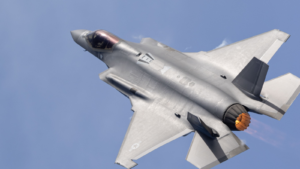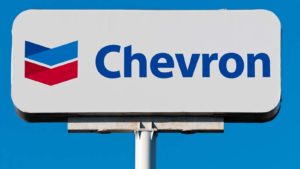I believe that 2024 will be good for equities. Potential rate cuts are a big impending catalyst. However, even with a bullish outlook, I would further strengthen my income portfolio by considering exposure to quality dividend-paying stocks. Of course, there are attractive growth stock stories, but it’s important to limit exposure to growth and penny stocks to 40% to 50% of your total portfolio.
Among dividend-paying stocks, the good news is that there are several that trade at a valuation gap. It’s always a great deal to buy blue-chip stocks at undervalued levels. I therefore believe that the stocks discussed in the column are poised for high total returns in the next few years. Also, if the markets correct, the downside in these stocks is capped and dividend income seems secure considering the cash flow potential.
Let’s discuss the reasons to be positive on these dividend-paying stocks.
Lockheed Martin (LMT)

Lockheed Martin (NYSE:LMT) is among the quality dividend-paying stocks to buy for an income portfolio. LMT stock offers a dividend yield of 2.78% and trades at an attractive forward P/E ratio of 16.7. Considering the valuations, I am bullish on high total returns.
It goes without saying that the defense sector is evergreen and Lockheed is positioned to benefit. The company’s backlog has been swelling and stands at $156 billion as of Q3 2023. This provides clear cash flow visibility and with a healthy order intake, dividends are sustainable.
I like the fact that Lockheed is investing significantly in research and development. The focus areas include unmanned aerial missions, next-generation space technology and hypersonic solutions, among others. The key point is that innovation will translate into sustained growth and cash flow upside. Further, focus on international collaborations will help in expanding the addressable market. With LMT stock being sideways in the last 12 months, it’s a good time to buy.
Chevron Corporation (CVX)

Chevron Corporation (NYSE:CVX) is an undervalued oil & gas stock that offers a dividend yield of 4%. With multiple rate cuts likely this year, I am bullish on oil and CVX stock is likely to trend higher from oversold levels. I would add that the stock is worth holding in the core portfolio considering the assets and cash flow potential.
As of 2022, Chevron reported proved reserves of 11 billion barrels oil-equivalent with a reserve replacement ratio of 97%. The recent acquisition of Hess Corporation (NYSE:HES) will further add to the reserve base and production visibility.
At the same time, Chevron has low break-even assets. Even with relatively depressed oil price, Chevron reported operating cash flow of $9.7 billion for Q3 2023. With an investment grade balance sheet, the company has high financial flexibility and has guided for investment of $16 billion in 2024. However, once the acquisition of Hess is completed, annual investment will be ramped-up to $19 to $22 billion.
AstraZeneca (AZN)

AstraZeneca (NASDAQ:AZN) is an undervalued dividend-paying stock that’s worth adding to the portfolio. In the last 12 months, AZN stock has remained sideways and looks attractive at a forward P/E ratio of 18.6. I would bet on high total returns from the stock in the next 24 to 36 months.
The first point to note is that AstraZeneca has an attractive pipeline. Currently, there are 167 projects in the pipeline with 14 new molecular entities in the late-stage. Potential blockbuster drugs provide growth visibility.
For the first nine months of 2023, AstraZeneca reported revenue and earnings per share growth of 5% and 17% respectively. It’s likely that earnings growth will remain robust considering the pipeline.
It’s also worth noting that for year-to-date 2023, the company reported 27% revenue from emerging markets. The company has healthy geographic diversification and emerging markets will continue to boost growth. At the same time, the company is entering into new therapy areas, which will boost the total addressable market.
Vale (VALE)

If we look at a 12-month chart, Vale (NYSE:VALE) stock has remained flat. However, the stock has trended higher by 16% in the last six months. The reason is hopes of expansionary monetary policies this year, which will be positive for industrial commodities.
As an overview, Vale is a producer and seller of iron ore and iron pellets. This segment is the cash cow for the company. However, Vale is increasingly investing in metals that are likely to see increased demand on the back of global energy transition. This includes copper and nickel. This is one reason to be bullish on VALE stock for the long term.
Coming to the financials, Vale reported adjusted EBITDA of $4.5 billion for Q3 2023. This would imply an annualized EBITDA of $18 billion. However, with iron ore trending higher, I believe that EBITDA is likely to be more than $20 billion for the year. With high financial flexibility, Vale will be positioned to make aggressive investments and increase dividends.
Barrick Gold (GOLD)

Barrick Gold (NYSE:GOLD) is an attractive dividend stock to buy with the possibility of robust dividend growth this year. Currently, GOLD stock offers a dividend yield of 2.24% and trades at an attractive forward price-earnings ratio of 21.6.
However, with gold trending higher, Barrick is positioned to report strong upside in free cash flows. This is likely to translate into aggressive investment and healthy dividend growth. To put things into perspective, Barrick Gold reported operating cash flow of $2.7 billion for the first nine months of 2023. This would imply an annual OCF potential of $3.6 billion.
However, with higher realized gold price, EBITDA margin expansion would translate into OCF in the range of $4.2 to $4.5 billion. With a strong reserves profile, Barrick will therefore be positioned to make aggressive investments to boost production and benefit from higher realized price. I therefore expect dividend growth to sustain beyond 2024.
Scorpio Tankers (STNG)

Scorpio Tankers (NYSE:STNG) stock has trended higher by 19% in the last 12 months. However, STNG stock remains deeply undervalued at a forward P/E ratio of 6. Further, a dividend yield of 2.24% is attractive and I expect the stock to deliver robust total returns.
As an overview, Scorpio is the world’s largest product tanker owner. The company has a fleet of 112 wholly owned, lease financed or bareboat chartered-in tankers. With attractive time charter equivalent rates, Scorpio is attractive and positioned to deliver steady revenue and healthy cash flows.
For the first nine months of 2023, Scorpio reported time charter equivalent revenue of $994 million. For the same period, the company’s adjusted EBITDA was $722 million. Clearly, EBITDA margin is robust and this has translated into dividend growth coupled with a strong balance sheet. As of November 2023, the company had a liquidity buffer of $810 million. This provides financial flexibility for potential fleet expansion.
Amdocs (DOX)

Among undervalued dividend-paying stocks, Amdocs (NASDAQ:DOX) is worth considering. DOX stock trades at a forward P/E ratio of 13.5 and offers a dividend yield of 1.98%. I am bullish on the stock trending higher and I also believe that dividend growth will be robust.
As an overview, Amdocs is a provider of software solutions and services to the media and telecommunication industry. The company has strong global presence, which is likely to translate into sustained revenue growth.
I would like to focus on the point that Amdocs reported free cash flow of $698 million for financial year 2023. For the current financial year, the company has guided for FCF of $750 million. This is the biggest positive as robust FCF will translate into healthy dividend growth. Further, Amdocs is positioned for opportunistic acquisitions that’s backed by high financial flexibility.
I must add here that Amdocs has partnered with Nvidia (NASDAQ:NVDA) to accelerate adoption of generative AI for the $1.7 trillion telecom industry. With a big addressable market, the growth and FCF outlook is positive.
On the date of publication, Faisal Humayun did not hold (either directly or indirectly) any positions in the securities mentioned in this article. The opinions expressed in this article are those of the writer, subject to the InvestorPlace.com Publishing Guidelines.

